Every company wants to stay in compliance with the latest standards and regulations and also ensure that their IFTA tax rates are not overpaid or underpaid. Through our experience, we have seen firsthand how failing to stay on top of IFTA reporting can lead to significant financial penalties and a lot of wasted time and effort.
We have seen how complying with IFTA can simplify the process of calculating and filing taxes, saving companies a lot of time and resources, and how companies can accurately track their fuel usage and mileage, ensuring that they are only paying the exact amount of tax owed, and avoiding underpayment or overpayment.
Therefore, any individuals or companies running commercial vehicles or trucks across many Canadian provinces or US states have to be mindful of the International Fuel Tax Agreement (IFTA).
Understanding the IFTA tax rates
The International Fuel Tax Agreement is a collection of fuel taxes and a sharing agreement for the redistribution of fuel taxes paid by interstate commercial fleet companies.
IFTA consists of 58 member jurisdictions, including 48 U.S states and 10 Canadian provinces. IFTA allows the payment of IFTA tax rates on the fuels that commercial truck drivers who are operating between more than one jurisdiction use.
As a result of this IFTA tax rates law provision, licensed inter-jurisdictional commercial truck drivers can collect, from the jurisdiction where their operations are based, a single license.
IFTA requires drivers to register and pay taxes to one jurisdiction only, thus simplifying their duties.
IFTA tax rates payable on fuels used by commercial vehicles drivers like natural gas, methanol, ethanol, gasoline, diesel, propane, and many others are tracked and collected by all jurisdictions of the Member States
Then members’ states share the revenues accordingly, depending on the amount of fuel used and the distances traveled by the driver in each jurisdiction. In each jurisdiction, the distances traveled and the quantity of fuel used are reported and documented by the commercial driver.
By mandating commercial fleet operators to pay fuel taxes proportionally, depending entirely on the miles traveled in each state or province, the IFTA tax rates agreement helps to ensure that each jurisdiction does have its fair share of the money to be earmarked for road and transport.
Brief History of the International Fuel Tax Agreement (IFTA)
Historically, transportation has been financed by motor fuel taxes. The first fuel taxes of 1919 and the 1-cent gas tax, formalized in 1933, were introduced to balance the government budget and pay for public services to boost economic growth.
In 1956, a decision was made to target fuel tax revenue specifically to the new Highway Trust Fund to support the rapidly increasing Interstate and highways system. This decision ensured that revenue generated from fuel taxes was used to improve transportation infrastructure.
Under the IFTA tax rates arrangement, eligible commercial motor carriers may receive IFTA licenses for their vehicles. These licenses enable them to pass across other IFTA jurisdictions and submit only one quarterly fuel tax return in their company base jurisdiction for fuel usage. This streamlined process saves time and money for commercial carriers.
However, when IFTA does not license commercial motor carriers, they would have to comply with the guidelines on fuel tax reporting for each jurisdiction through which they travel. This may include obtaining permits for fuel trips, which can add additional administrative burden and costs for commercial carriers.
In addition to the ELD requirement and Hours of Service Management, IFTA is an essential part of fleet compliance. It ensures that commercial motor carriers accurately report and pay their fuel taxes, while also streamlining the process for eligible carriers with IFTA licenses.
Four Parts of IFTA Fuel Tax Forms

Thankfully, we have lists of fleet management solutions that make it much easier for trucking companies to stay in compliance, even with the criteria of IFTA fuel tax reporting.
Having visited and worked with many trucking companies, we’ve seen the consequences of non-compliance and incomplete records. We’ve seen how it can lead to hefty fines and even legal issues. That’s why we strongly advise filling out our consultation form to ensure your business is on the right track toward IFTA compliance.
With our experience and expertise, we can guide you in selecting the best fleet management solution suitable for your specific business needs.
Part 1 – Mileage
IFTA fuel tax forms involve details of each travel. The fuel tax forms ask for sensible things such as the origin, destination, start, and end dates.
Needed details, however, also include trip routes, odometer readings beginning and ending, total miles, and miles within each jurisdiction.
Also, the distance between taxable and non-taxable miles must be broken down.
Part 2 – Fuel Receipts
In compliance with IFTA tax rates, relevant information must be retained on fuel receipts. A few of the specifications include the date of purchase, the type and amount of fuel, and the name of the sellers.
However, carriers that use tax-paid bulk storage must document each withdrawal of fuel.
Part 3 – States
Each state collects its fee.
Part 4 – Fuel Tax Reporting Periods
The IFTA forms payment should be paid at the tax bureau by April 30 for the first quarter. Fortunately, some Fleet Management solution makes it effortless to prepare such documents.
And this FMS will assist with monitoring each load’s income, costs, mileage, and expenses.
What Territories Recognize the IFTA? – IFTA and Non-IFTA Jurisdictions
The IFTA member jurisdictions work together to implement, collect, and share taxes on motor fuel. IFTA licenses are valid for travel in the lower 48 jurisdictions in the United States and ten provinces in Canada.
Several jurisdictions have not been members of IFTA where IFTA licenses are not relevant, including Northwest Territories, Nunavut, Alaska, Hawaii and Columbia District, Yukon, and the Federal District of Mexico.
Not all Canadian territories and U.S. states are part of the IFTA tax rates agreement. And when drivers travel through all of these areas, the driver will take separate records and pay any taxes owed to these jurisdictions separately.
What is The Reporting Process of IFTA?
Under IFTA regulation, commercial truck drivers are required to keep accurate records of driven miles, purchased gasoline, and fuel tax paid in each state or province they pass through.
Carriers send these reports for review annually to the IFTA based in their jurisdiction. Then, the jurisdiction decides whether or not they owe taxes or will collect a credit.
Although IFTA tax rates allocation is such a diverse and complex process, IFTA, together with the International Registration Plan (IRP), facilitates the process and provides support and advice to states and regions on conducting their programs.
The current IFTA tax rates are available on the IFTA website.
8 Steps of the IFTA Process Overview
Now, let’s take a look at the overview of the process.
- Step 1 – Commercial carrier needs to submit to its business base IFTA jurisdiction an application for an IFTA license.
- Step 2 – The IFTA in the business base jurisdiction checks and approves the application for a license.
- Step 3 – The commercial carrier collects the IFTA license for each eligible vehicle and two decals for each. And when the vehicle is in operation, a copy of the license should be put inside the vehicle.
- Step 4 – The licensed carrier will then submit a quarterly IFTA tax return to the IFTA in their base jurisdiction for fuel used and also remits any due amounts.
- Step 5 – IFTA tax return review and processing will then be carried out by base jurisdiction.
- Step 6 – The IFTA in the carrier base jurisdiction sends a transmittal report to all the other jurisdictions where the vehicle was operating in.
- Step 7 – All payments and transmittal reports from other states are handled through the carrier IFTA base jurisdiction
- Step 8 – Carrier pays whatever they owe to the base jurisdiction, and the base jurisdiction pays all other IFTA jurisdictions what they owe and receives what is due to them from other jurisdictions.
When Are IFTA Taxes Filed?

The IFTA eliminates tax paperwork dramatically for drivers, saves time, eliminates accounting errors, and simplifies compliance with fuel tax laws.
Any truck driver registered under the IFTA must send a fuel tax return to his/her base jurisdiction every quarter.
Complete details on reporting requirements list several details, and the quarterly returns are due to be published at the end of each month after being reported.
And if failed to meet the deadline, a late penalty of $50 or 10 percent of the IFTA tax rates owed, whichever is higher, will be imposed.
Which Vehicle Type Qualifies for IFTA?
Under IFTA, not all types of commercial drivers can be approved.
The vehicle driver needs to use a vehicle that is eligible to be licensed under the IFTA Agreement, which requires that a licensed vehicle is used, manufactured or operated for the movement of people or property.
And the vehicle must also satisfy one of the following conditions for size and weight:
- The qualified vehicle ought to have two axles as well as a gross weight of more than 26,000 pounds or 11,797 kg.
- The vehicle comes with three or more axles, no matter what weight.
- When used with a trailer, the vehicle must also have a total combined weight of more than 26,000 pounds or 11,797 kilograms.
Recreational vehicles are not eligible, and also, farm-plated vehicles have special additional rules. And Registration charges for IFTA can vary from province to state.
After registration, a single license is provided for the company’s eligible vehicles and together with two decals per each vehicle to be placed in a sufficiently visible location on the vehicle.
The decals and licenses are valid from 1 January to 31 December of every year and must, therefore, be renewed annually.
Applications to acquire decals and licenses may be made available online or print out and sent to the IFTA base jurisdiction office.
It is wise to check with your desired base in a Canadian province or U.S. state to know exactly where and how to apply, as there is no centralized application structure.
What are Single-Trip Permits?
Single-trip permits apply for drivers that don’t have an IFTA license but only periodically travel across jurisdictions.
These permits could be obtained from approved agents on a trip-by-trip basis and also allow for travel to many other jurisdictions by licensed vehicles.
And The permits apply to only one vehicle and one trip over a specified period and distance. Certain costs are usually included for these types of licenses beyond the fuel tax.
Are There any IFTA Exemptions?
There are quite a variety of exemptions for vehicles, fuel, and distance allowed for IFTA; however, they vary by jurisdiction.
In some Canadian provinces and U.S states, in particular, government-owned vehicles, recreational vehicles, school buses, farm-plated vehicles, and tow trucks, are excluded but not all.
And according to the 2017 list, Biodiesel is also excluded from IFTA. The comprehensive list of exemptions from the IFTA is posted on their site.
Due Dates of IFTA Fuel Tax Reporting
As we mentioned earlier, commercial carriers file a quarterly tax return for all their registered vehicles to their base IFTA jurisdiction.
And these IFTA tax rates return covers the use of motor fuel and the distance traveled across IFTA member jurisdictions.
Even though the commercial carrier has not carried out any operations or used taxable fuel for a given period, a report should be filed. Many ELD devices, such as Motive (formerly Keep Truckin) or Switchboard create automatic IFTA reports.
The deadlines for filing tax returns and making the payment are the last day of April, July, October, and January (or the next business day, if that day falls on a public holiday or weekend.
Is it Possible to Cancel IFTA Licence?
An existing IFTA tax rates license may be revoked. Usually, if the driver has filed the IFTA tax returns every quarter and has paid all accrued taxes and penalties, he may get his license revoked.
When this happens, the driver must no longer operate motor vehicles or instead choose to use single-trip permits.
And also, the driver must destroy all paper licensing and decals in case of revocation and hold all IFTA tax records for at a minimum of four years.
An IFTA license may be revoked in situations where the filing requirements are therefore not met, or taxes are still not paid.
Generally, an IFTA license is a minimum-cost way to implement the fuel tax reporting requirements for commercial truck and bus drivers.
What are the IFTA penalties for non-compliance?

If the driver fails to file a tax return after the due date or fails to pay the amount due, both California ifta fuel tax rates and New York impose a $50.00 or 10 percent fine.
For instance, Texas extends the regulation to say, “If failing to pay the taxes is due to fraudulent activity, the driver would be subject to a fine of two times the amount of tax owed.”
When you travel to an IFTA jurisdiction without a permit, a fine, a penalty, or a warning may be imposed based on the laws of the IFTA tax rates per state jurisdiction.
For California, you might get a fine of $100 to $500. For instance, if the driver fails to file a tax return after the due date or fail to pay the amount due, both New York and IFTA tax rate California impose a $50.00 or 10 percent fine.
Top 5 ELDs for IFTA Report
We know from our experience that failing to keep up with IFTA requirements can lead to significant headaches in the long run, including fines, penalties, and even a damaged reputation in the industry.
The IFTA report is very important if you own a truck, have a commercial fleet company, or just dispatch. And if IFTA isn’t kept up with, it can give you a lot of long-term headaches.
Based on our experience, we have compiled a list of our top 5 ELDs for generating accurate and reliable IFTA reports. These ELDs have been tried and tested by us, and we can vouch for their effectiveness in keeping up with IFTA requirements.
The following are our top 5 ELDs for IFTA Report.
1. Motive (formerly keep Truckin) ELD
Motive (formerly KeepTruckin) ELD’s powerful suite of features, its user-friendly interface, as well as low price point make the product one of the most appealing ELD solutions available today.
Motive (formerly KeepTruckin) provides an ELD platform for vehicles of any size, with a simple package that includes ELD-compliant logs, GPS tracking, two-way messaging, and customizable vehicle inspection features, including vehicle history and automatic notifications.
Features
- Reporting information about the International fuel tax agreement (IFTA)
- Driver vehicle inspection report (DVIR)
- Hours of Service (HOS)
- And much more!
Motive (formerly KeepTruckin) automatically detects the travel time and the fuel used by jurisdiction. And the Fleet managers may display in-depth trip reports or filter summaries by date or type of vehicle.
2. Samsara
For a carrier that is also interested in a full fleet management system, the Samsara ELD is an excellent choice.
Although you don’t need to buy a complete FMS solution package to acquire the ELD-compliance hardware/software bundle, upgrading to one is simple. And Samsara provides one of the most robust FMS services available.
The company helps to eliminate time spent on tedious paperwork and classify sources of high fuel costs with Samsara ELD fuel, Idling, and IFTA mileage reports.
With this system, users can Set up Idling Alerts to get alerted when drivers are overly idling or have Fuel Reports sent to you so you can review the fuel activity.
3. GPS Trackit ELD
This ELD solution from GPS Trackit is open to fleets without locking them into any contract for a year.
The company offers quick, easy-to-install hardware, a plug-and-play unit as well as an application that provides all of the necessary features and functionality for an ELD mandate-compliant system.
- Maintenance Checklist
- Simple Installation
- Intuitive Interface
- Downloadable app
- Custom alerts
- No Contracts
GPS fleet tracking solution improves reliability in collecting the fuel tax information needed for an IFTA report; however, with GPS Insight, it all comes from the State Mileage report.
This GPS Insight IFTA report includes the miles traveled in each state, by truck, the amount of fuel the vehicle used as well as the overall fuel cost.
This State Mileage report also enables the fleet manager to organize by vehicle or state.
And GPS Trackit continues to offer both hardware packages as well as BYOD options, with monthly subscription pricing rates starting at $24.95 contract-free.
4. Gorilla Safety ELD
The Gorilla Safety ELD is a cost-efficient ELD solution, providing high-quality ELD compliance as well as DVIR service at the lowest upfront and monthly prices.
Each ELD unit comes at $175 if it is purchased for ownership but only $7 if it is leased.
Companies that emphasize documentation will see Gorilla Safety as one of the best solutions available on the market to streamline their business process.
Features
- Suitable for fleets of all sizes
- Mechanic inspections
- Document management
- Free Trial
- Low cost
Not only does the Gorilla Safety Fleet Management System reporting functionality helps you stay on track, but it also enables fleet managers to know what the fleet drivers are doing on the road.
Compliance is crucial in the fleet industry. And the company uses the latest GPS technology with the Gorilla Health IFTA reporting tool.
And this approach has been developed to use the most basic standards to stay compliant in all jurisdictions.
As a result, the fleet enjoys ease of doing business, not spending more than they should on fuel taxes and also keeping the fleet compliant.
5. Omnitracs ELD
Omnitracs provides many benefits, but its cost-efficiency will depend on the type of subscription plan the user chooses and whether the hardware units were leased.
The interface and functionality are tough to beat, and also, the 24/7 online support will assist drivers’ concerns on the road.
It also provides two compliance-oriented ELD units (apart from the FMS unit). A plug-and-play model is the Omnitracs XRS system, while the IVG model has to be hardwired into the truck.
Features
All the company services offer a similar set of functions, such as automatic IFTA report, HOS record, fuel tracking, DVIR data, and also vehicle tracking, safety reporting, two-way messaging, driver monitoring, Bluetooth support, and delivery evidence.
When it is leased, there is no additional cost to the XRS; leases are also available for the IVG model, but if purchased outright, it will cost a whopping $800.
Conclusion – What is the Purpose of IFTA Auditing?
All IFTA member jurisdiction is expected to audit 3% of its licensed base annually to ensure compliance and guarantee payment of the required tax.
Although the possibility of an IFTA audit could cause distress among some, however, it serves a significant function.
Though many carriers find it difficult to accept the IFTA audits, however, the audits are meant to ensure carrier compliance and not to generate more revenue.
One way of making compliance with IFTA possible is to maintain the records accurately. Detailed record keeping is beneficial to file your returns on IFTA and Mile Tax.
In the case of an audit, inadequate or inaccurate records will cost a commercial carrier enormous sums of money in interest and penalties, disallowed ifta diesel fuel tax rates, extra miles, or a reduction in MPG.
If the concerned carrier has detailed records, the audit would be more of a verification process than an audit of records.
If the carrier auditor provides full supporting information, whether manual records or GPS data, then the IFTA tax rates audit appears to get much smoother.




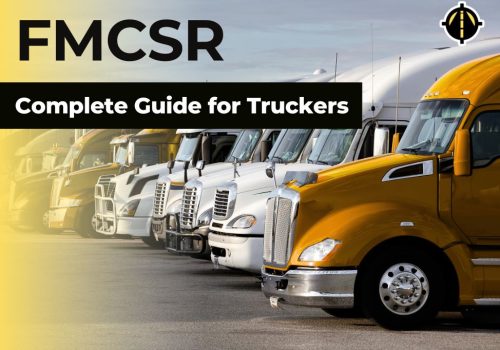
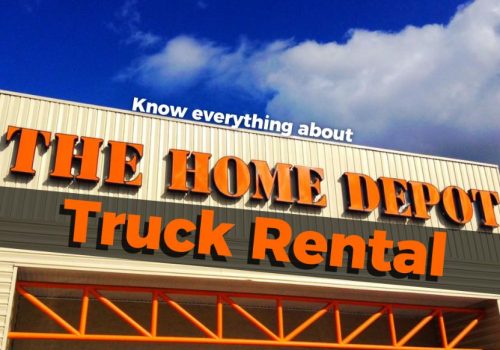
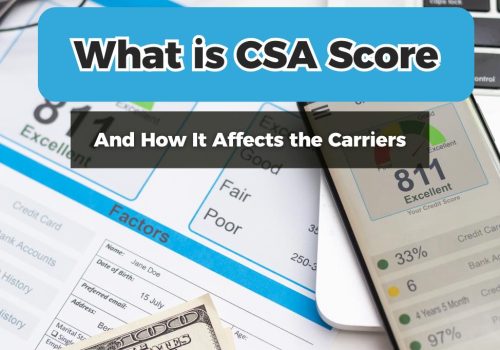
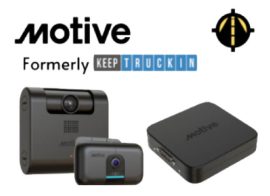
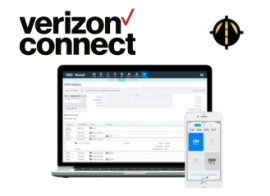


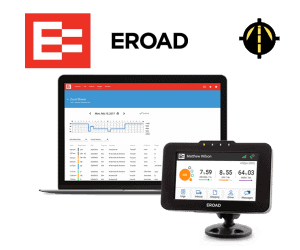
 Answer 5 simple questions to request a
Answer 5 simple questions to request a